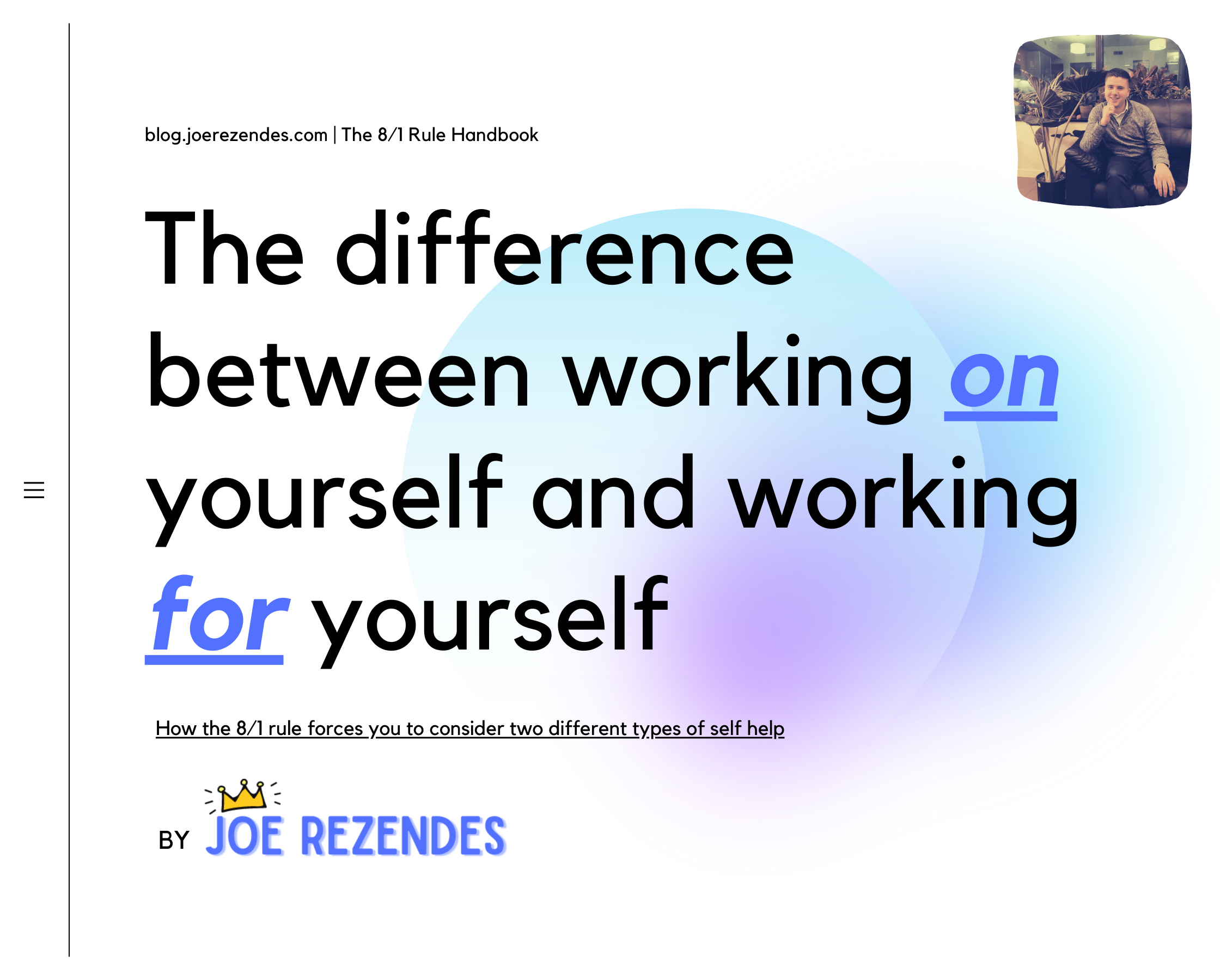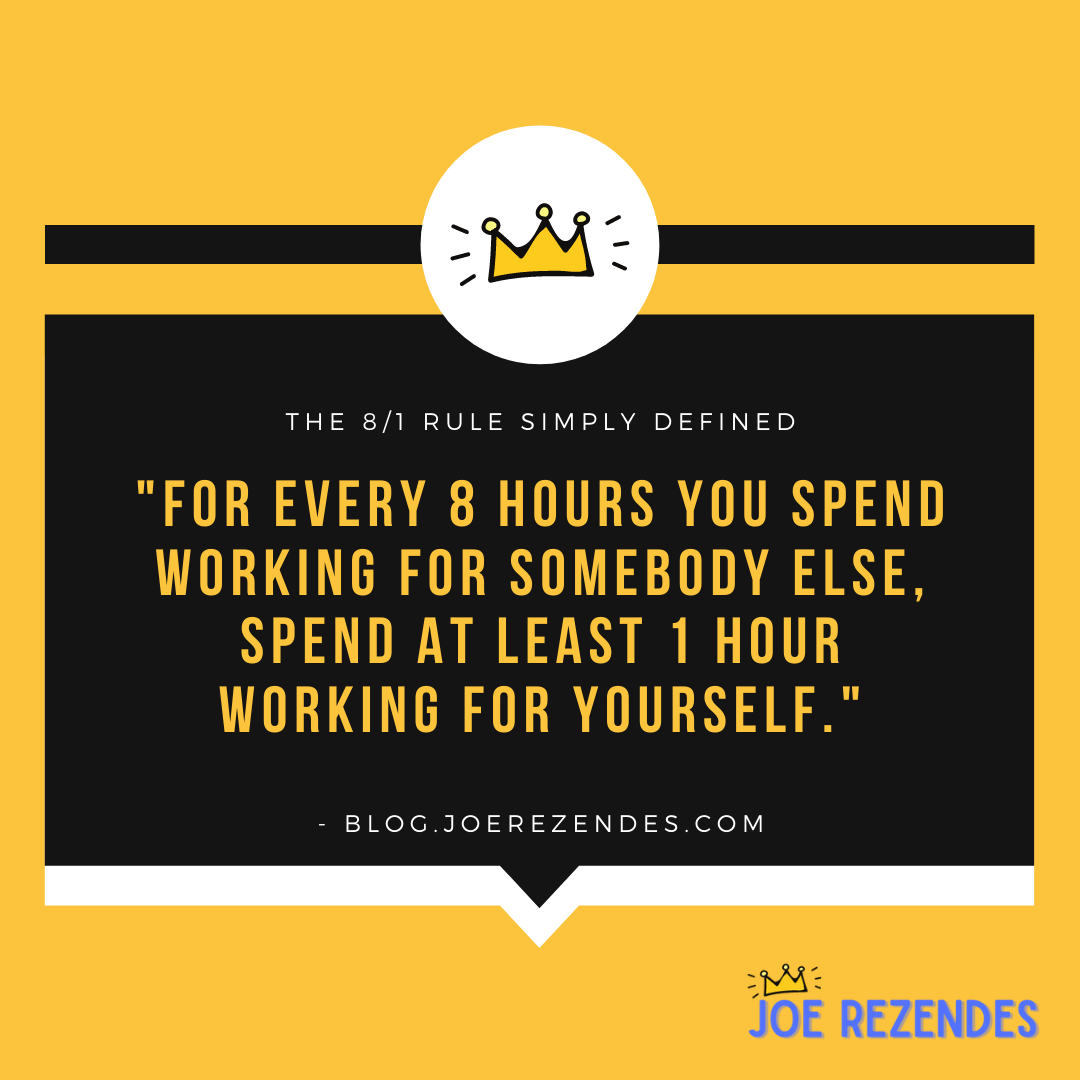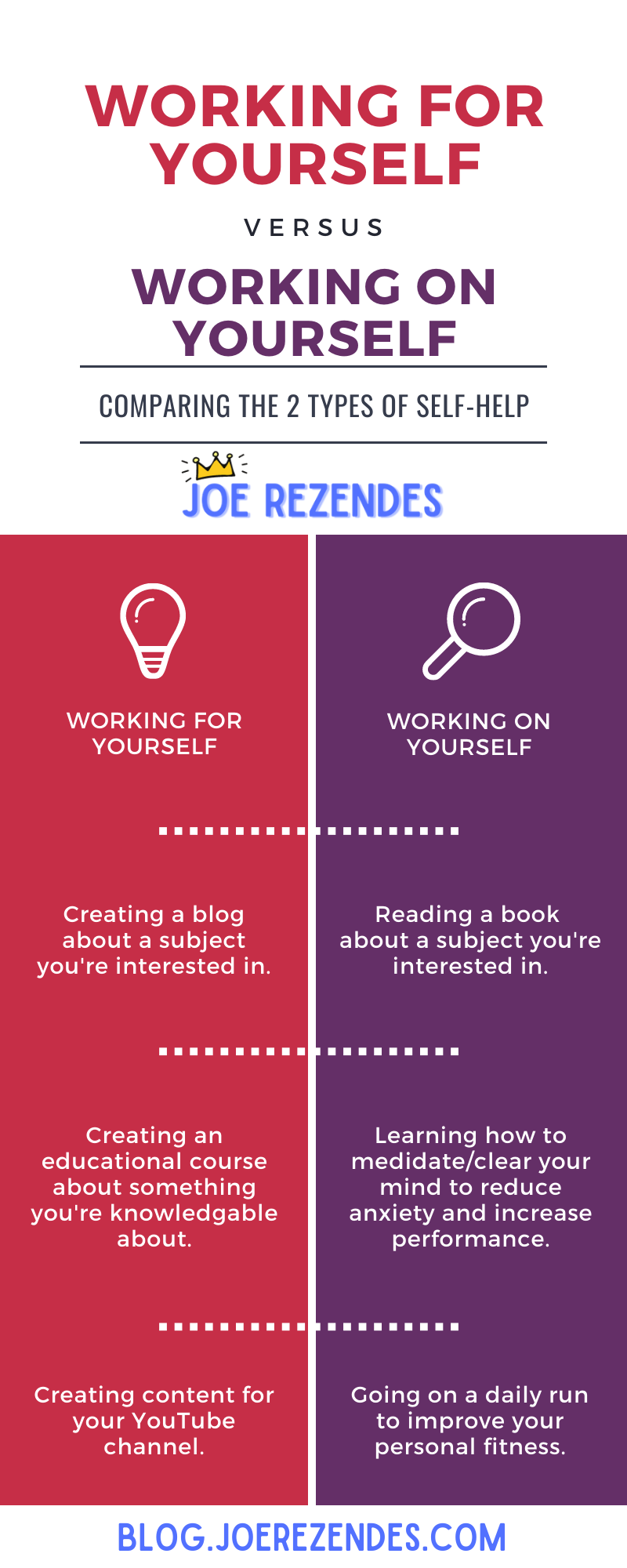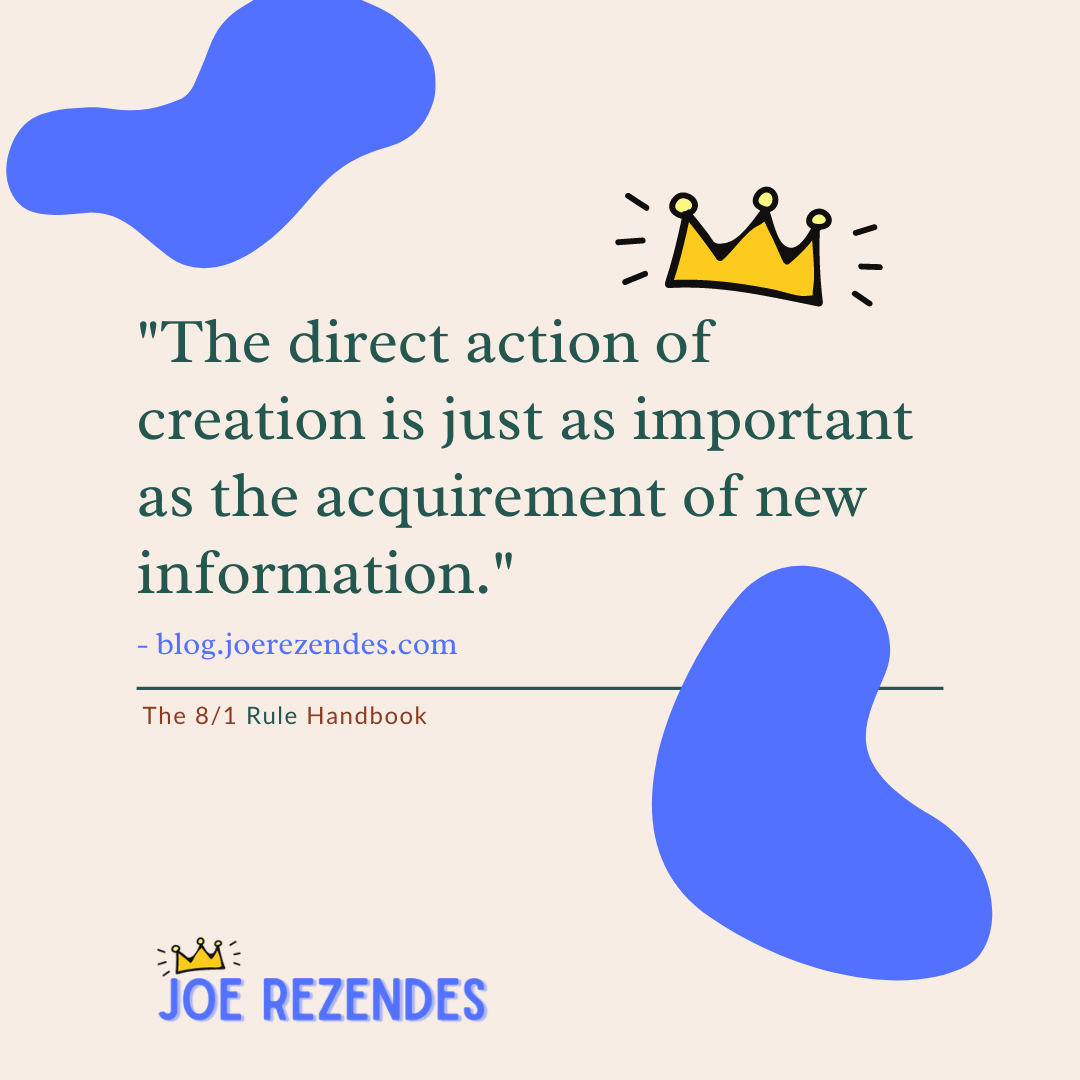How the 8/1 rule forces you to think about two different forms of self help

This is a an elaboration on the 8/1 rule I've defined all over this blog. If you're new to the 8/1 rule then I suggest reading the original declaration first.

In case you've forgotten, here's a quick refresher on the 8/1 rule:

So What's the Comparison Here?

Work you do for yourself produces things in your name, work you do on yourself increases your skillsets or performance in a particular field.
Working On Yourself
Content about working on yourself has been exhausted by self-help gurus for decades, yet people keep coming back to it because it's genuinely valuable.
Working on yourself is something you can never be finished with, and it's also important to never stop this process of self-improvement. The aim of the 8/1 rule is that you working on yourself and working for yourself come hand in hand.

Everybody knows that some of the most successful entrepreneurs and business leaders read new things constantly. What differentiates these entrepreneurs from other readers is the fact that along with reading, they create tangible things and products too.
The direct action of creation is just as important as the acquirement of new information.

In order to make the most out of your career you should pursue both self-knowledge and self-action, because what good is having knowledge you don't put to actual use?
Perhaps personal fulfillment if you have a love for learning new things as much as I do. But to the extent of gratification I derive from learning new things, I find that building new things with what I've learned is infinitely more gratifying.
Working For Yourself
Under the 8/1 rule, we treat ourselves as our own businesses. Separating working for yourself and working on yourself becomes a personal branding mindset.
When we work for other people we're producing something that can be measured. When we work for ourselves we should be doing the same thing.
The end result of any work you do for yourself should be the production of something tangible. It doesn't necessarily need to generate revenue, it just needs to bring value to your personal brand.

The aim of separating working for yourself and working on yourself isn't to diminish the value of working on yourself. It's a declaration to consider both.
So much has been written about the benefits of working on yourself in self-help guides, but not much has been said about the benefits of working for yourself.
By creating a polarity between the two, my hope is that you'll consider spacing out time to focus on both types of self help.
For a more complete list of work you can do for yourself, check out this master list.

If you've taken anything practical from this post, I'd be enamored if you shared it with your friends on social media.
You can also considering subscribing to my emailing list for similar content.





